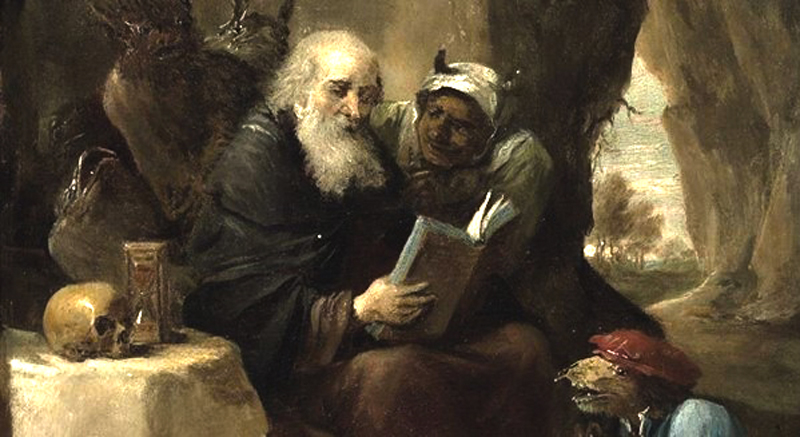(Died 1351)
Conrad was a member of one of the most noble families of the city of Piacenza and thusly enjoyed all the benefits riches and station in life. He was married at a young age and by all accounts led a virtuous and God-fearing life.
One day, while out hunting, he instructed his servants to set fire to some brush in order to flush out the game that had taken refuge there. The wind caught the flames and as a result the nearby fields caught fire, destroying valuable farmland and forest.
A poor mendicant peasant was found nearby and was charged and convicted of the crime. As the unfortunate man was being led to his execution, Conrad, in a fit of remorse, confessed to the heinous crime.
Conrad agreed to pay restitution for all the damage he inadvertently committed. His fortunes reduced, he retired to a hermitage and his wife joined the Poor Clares. Sometime later, Conrad moved first to Rome and later to Sicily. It is said that for thirty years he lived a reverent and penitential life on the island. many miracles were ascribed to him.
Conrad is especially invoked for the cure of hernia. In 1515, Leo X permitted the town of Noto to celebrate his feast, which permission was later extended by Urban VIII to the whole Order of St. Francis. Though bearing the title of saint, Conrad was never formally canonized.
Adapted by A. J. Valentini from: Donovan, S. (1908). St. Conrad of Piacenza. In The Catholic Encyclopedia. New York: Robert Appleton Company. Retrieved Feb. 10, 2021 from New Advent: http://www.newadvent.org/cathen/04260b.htm
